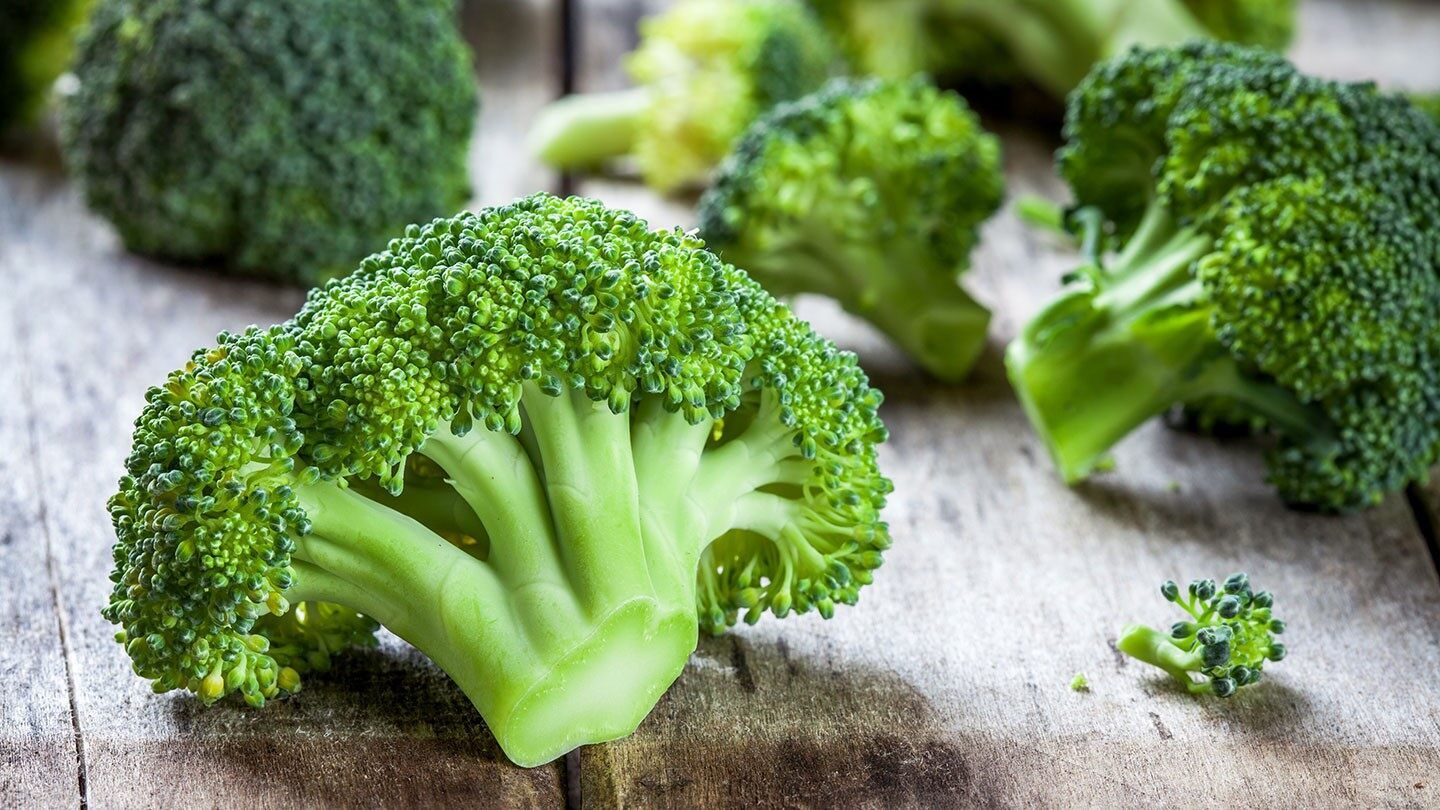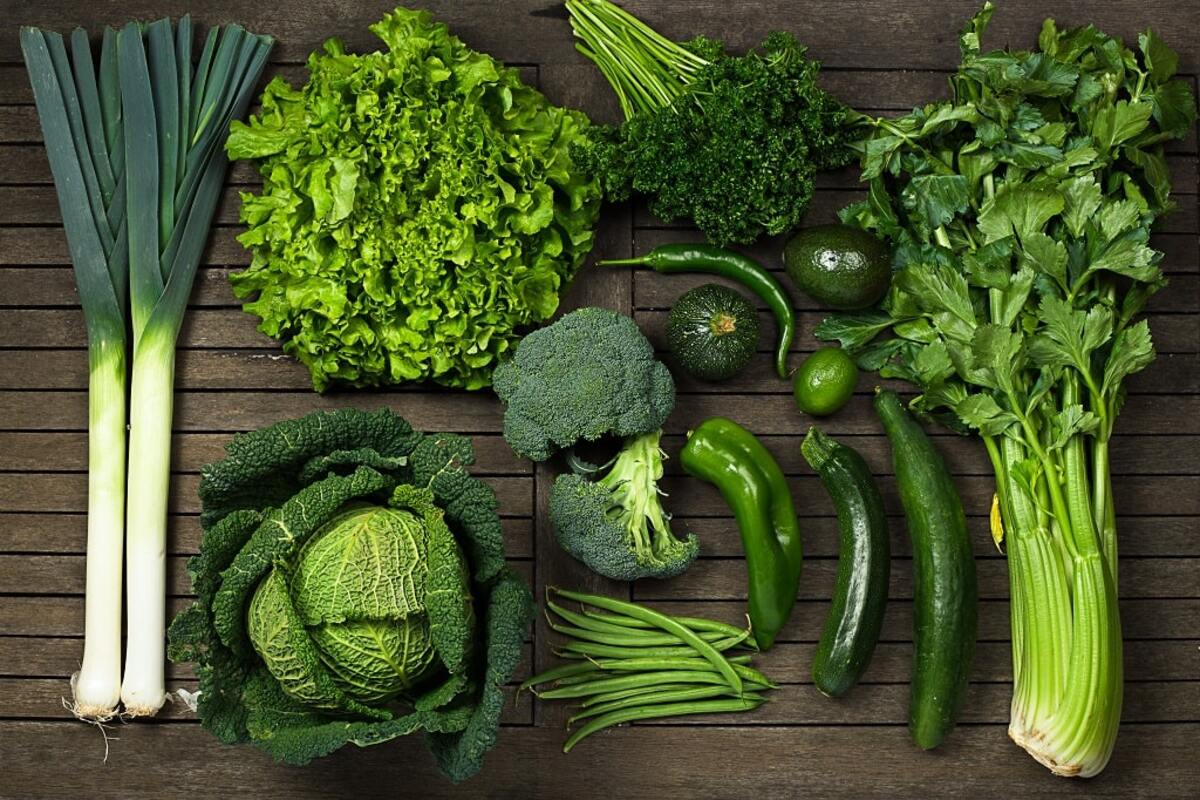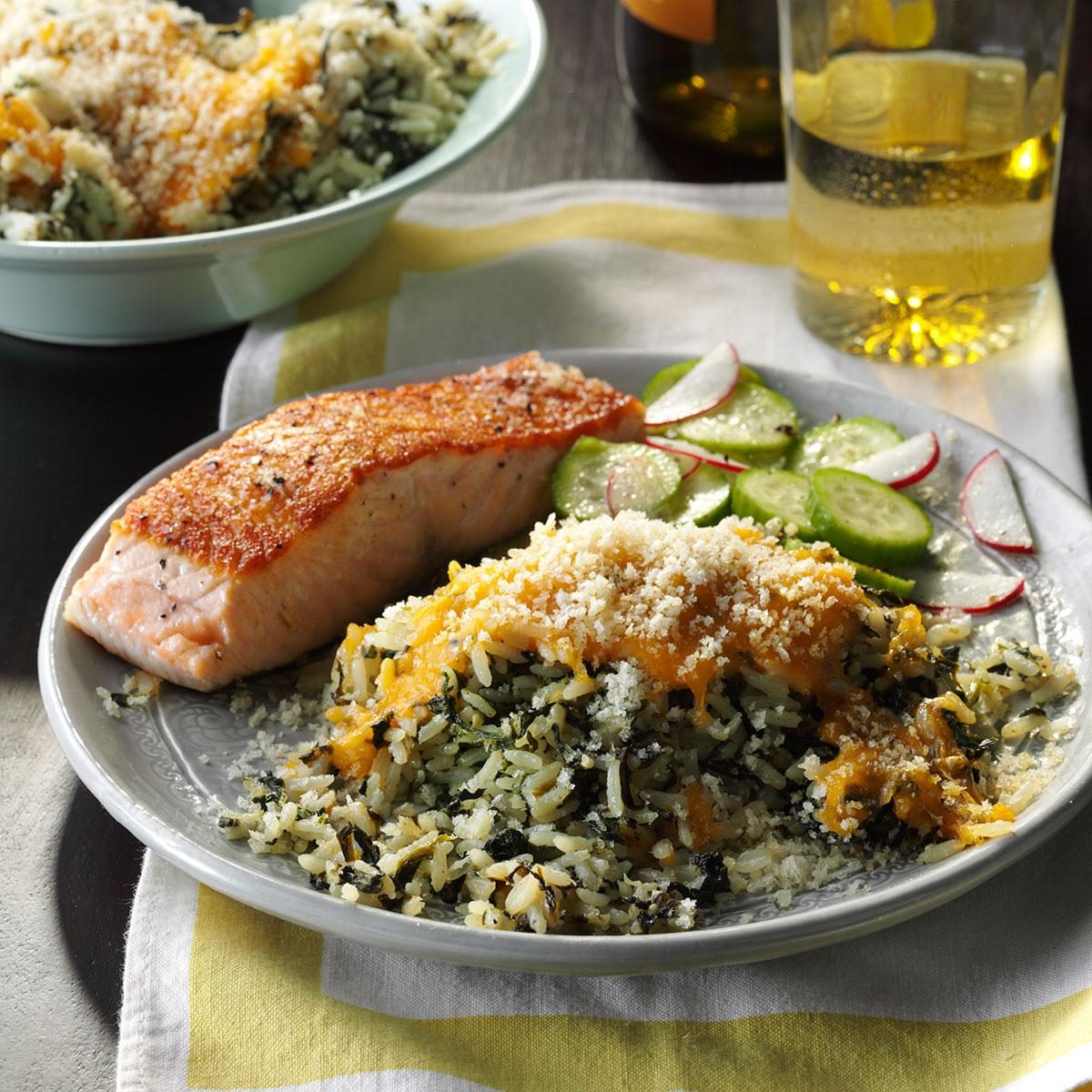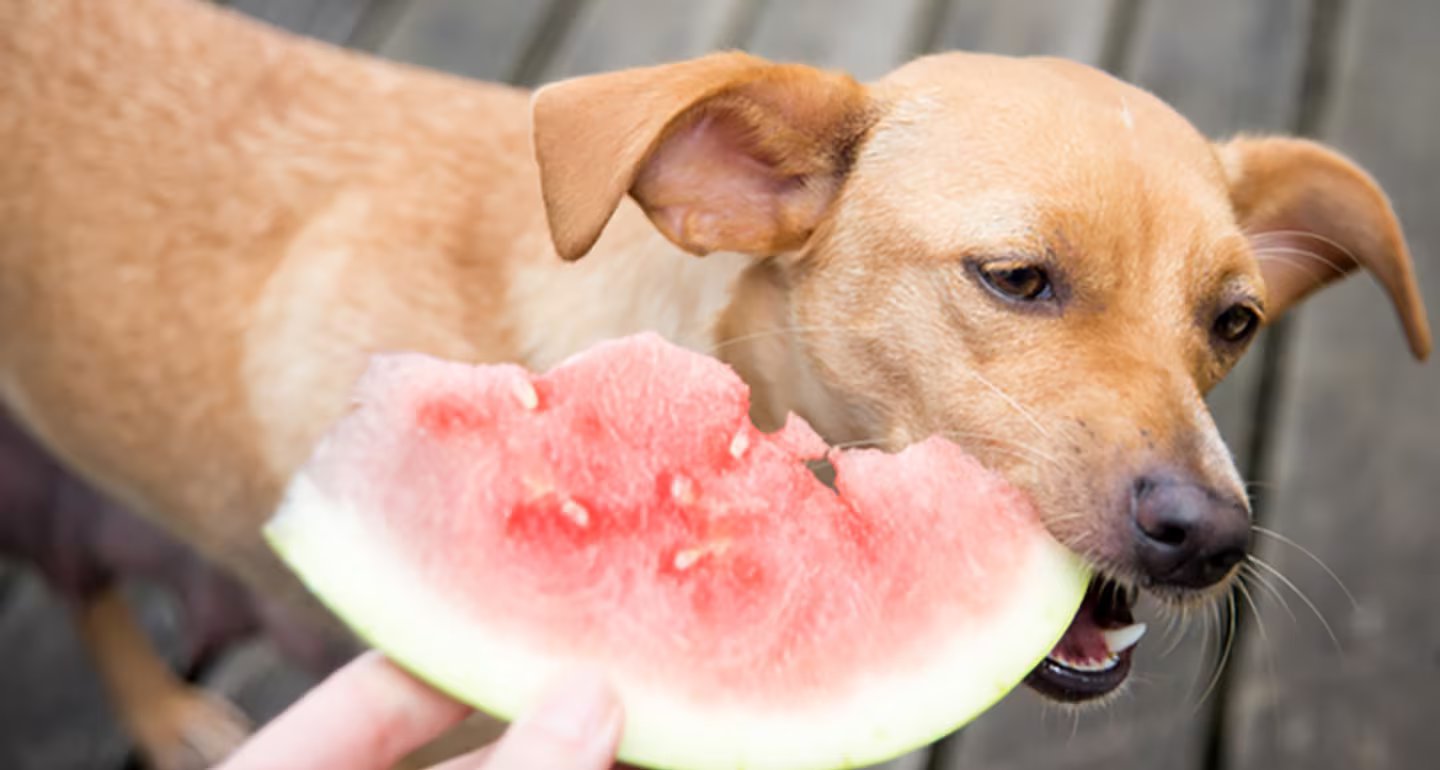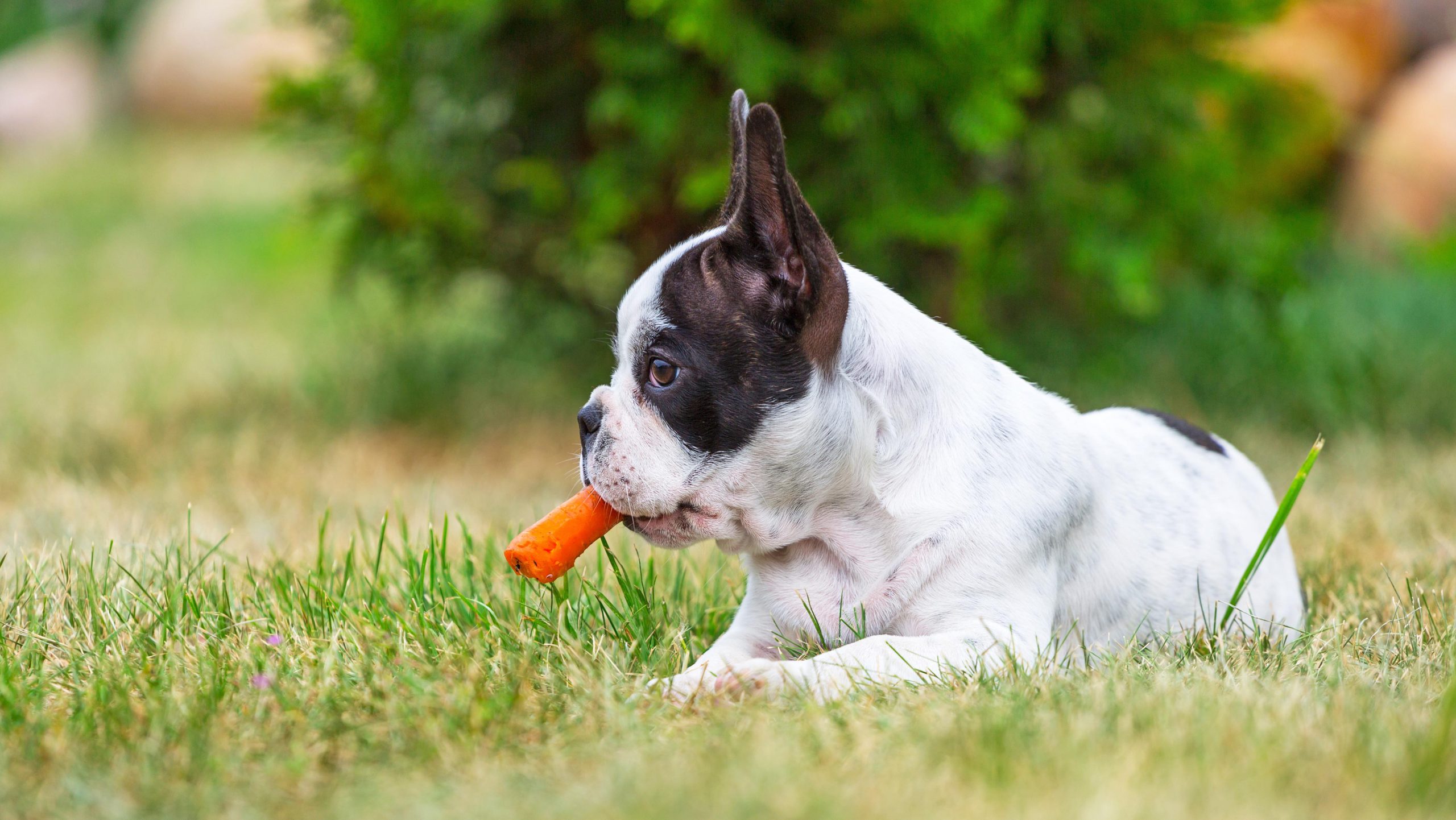Home>Gardening News and Trends>Latest News>What Vegetables Are Good For Dogs?
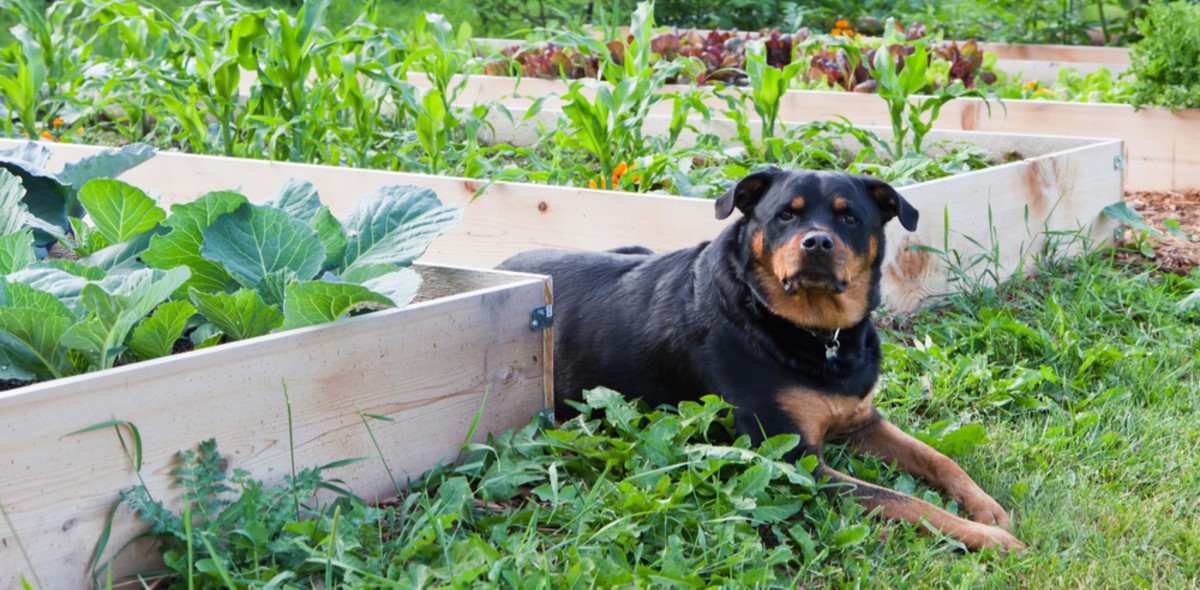

Latest News
What Vegetables Are Good For Dogs?
Modified: January 22, 2024
Discover the latest news on what vegetables are good for dogs. Keep your furry friend healthy with our expert recommendations.
(Many of the links in this article redirect to a specific reviewed product. Your purchase of these products through affiliate links helps to generate commission for Chicagolandgardening.com, at no extra cost. Learn more)
Table of Contents
Introduction
As pet owners, we all want to ensure that our furry friends are getting the best nutrition possible. While dogs are primarily carnivorous, incorporating vegetables into their diet can provide a range of health benefits. Not all vegetables are suitable for canines, so it’s important to know which ones are safe and beneficial.
Vegetables can be a great source of vitamins, minerals, and dietary fiber for dogs. They can help with digestion, promote a healthy coat, support immune function, and contribute to overall well-being. However, it’s important to note that dogs have different digestive systems than humans, so not all vegetables that are healthy for us are safe for them.
In this article, we will explore a variety of vegetables that are safe and beneficial for dogs. From crunchy carrots to nutrient-rich leafy greens, we’ll cover a wide range of options to help you diversify your dog’s diet.
Before introducing any new vegetables into your dog’s diet, it’s crucial to consult with your veterinarian. They will be able to provide specific recommendations based on your dog’s individual needs, preferences, and any underlying health conditions. Additionally, when introducing vegetables to your dog’s diet, it’s important to start slow and monitor for any adverse reactions.
Now, let’s dive into the world of dog-friendly vegetables and explore the many options available to nourish your beloved pet.
Cruciferous Vegetables
Cruciferous vegetables are a group of nutrient-packed veggies that belong to the Brassicaceae family. These vegetables are not only beneficial for humans but also for our canine companions. They are rich in vitamins, minerals, and phytonutrients that promote good health.
One popular cruciferous vegetable that dogs can enjoy is broccoli. This green veggie is packed with vitamins A, C, and K, as well as fiber and antioxidants. It can support your dog’s immune system and promote healthy digestion. Steam or lightly cook the broccoli to make it easier for your dog to digest and avoid any potential digestive issues.
Another cruciferous vegetable that is safe for dogs is cauliflower. It is low in calories and high in fiber, making it a great choice for dogs on a weight management plan. Cauliflower is rich in vitamins C and K and provides essential minerals such as potassium and magnesium.
Kale, a nutrient powerhouse, is also part of the cruciferous vegetable family. It is loaded with vitamins A, C, and K, as well as antioxidants that can help protect your dog’s cells from damage. However, it’s important to note that kale should be given in moderation as excessive consumption can interfere with thyroid function.
If you want to introduce a novel taste to your dog’s palate, you can try adding some Brussels sprouts to their meals. Brussels sprouts are rich in fiber, vitamins C and K, and antioxidants. They can contribute to a healthy digestive system and provide a boost to your dog’s overall well-being.
Remember, when feeding cruciferous vegetables to your dog, it’s essential to cook them lightly or steam them. This helps break down some of the fibrous components and makes digestion easier for your furry friend. Additionally, it’s important to introduce these vegetables gradually to avoid any gastrointestinal discomfort.
Leafy Greens
Leafy greens are not only beneficial for humans but can also provide a range of health benefits for our canine companions. They are packed with essential vitamins, minerals, and antioxidants that support overall well-being. Here are some leafy greens that are safe for dogs:
Spinach is a nutrient-rich leafy green that can be a great addition to your dog’s diet. It is loaded with vitamins A, C, and K, as well as iron and calcium. However, it’s important to note that oxalates, naturally occurring compounds in spinach, can interfere with calcium absorption. Therefore, it’s best to feed spinach in moderation and make sure to blanch or steam it to break down the oxalates and make it easier to digest.
Kale, mentioned earlier as a cruciferous vegetable, is also a leafy green that dogs can enjoy. It is an excellent source of vitamins A, C, and K, as well as antioxidants. However, moderation is key when feeding kale to dogs, as excessive consumption can interfere with thyroid function. Chop the kale into small pieces or blend it to make it easier for your dog to chew and digest.
Another leafy green option is Swiss chard, which provides a range of nutrients including vitamins A, C, and K, as well as magnesium and potassium. It is low in calories and high in fiber, making it a great choice for dogs on a weight management plan. Cook the Swiss chard before serving to enhance digestibility.
Romaine lettuce is a leafy green that can add crunch to your dog’s meals. It is a good source of vitamins A, C, and K, as well as water content, which can help keep your dog hydrated. Tear the lettuce into small pieces before serving to make it easier for your furry friend to chew.
When introducing leafy greens to your dog’s diet, it’s important to start with small amounts and gradually increase the serving size. Monitor your dog for any signs of digestive upset or allergies. Remember, each dog is unique, so it’s important to consult with your veterinarian to determine the appropriate amount of leafy greens for your furry friend.
Root Vegetables
Root vegetables are not only delicious but also offer several health benefits for dogs. These vegetables are packed with essential nutrients, including vitamins, minerals, and fiber. Here are some root vegetables that are safe and beneficial for dogs:
Carrots are one of the most popular root vegetables for dogs. They are not only crunchy and tasty but also packed with vitamins A, K, and C. Carrots also contain beta-carotene, which is converted into vitamin A in the body and promotes good vision and a healthy immune system. Raw carrots can provide a natural chew toy and help keep your dog’s teeth clean. Alternatively, you can steam or cook them lightly to enhance digestibility.
Sweet potatoes are another root vegetable that dogs can enjoy. They are rich in vitamins A, C, and B6, as well as dietary fiber and antioxidants. Sweet potatoes can be cooked, mashed, or sliced into fries to make a nutritious and delicious treat for your furry friend. They are also commonly used as an alternative carbohydrate source for dogs with food sensitivities.
Parsnips, although less common, are another root vegetable that can be added to your dog’s diet. They are a good source of dietary fiber, vitamins C, E, and K, as well as potassium. Cooked parsnips can be mashed or cut into small pieces and mixed with your dog’s regular food for added flavor and nutrients.
Beets are root vegetables that provide several health benefits for dogs. They are high in fiber, folate, manganese, and potassium. Beets can help support healthy digestion, boost energy levels, and promote a strong immune system. You can cook or steam beets and then chop them into small pieces before serving them to your dog.
When introducing root vegetables to your dog’s diet, it’s important to keep portion sizes moderate and gradually increase them over time. This will allow your dog’s digestive system to adjust. Also, ensure that the root vegetables you feed your dog are free of any seasonings, additives, or harmful substances, such as onion or garlic. Consult with your veterinarian to ensure that root vegetables are suitable for your dog’s specific dietary needs.
Squash and Pumpkin
Squash and pumpkin are not only popular fall favorites but also nutritious additions to your dog’s diet. These colorful vegetables are packed with essential vitamins, minerals, and dietary fiber that can benefit your canine companion. Here’s why squash and pumpkin are great options for your dog:
Winter squash varieties, such as butternut squash and acorn squash, are rich in vitamins A, C, and E, as well as minerals like potassium and magnesium. They also offer a good amount of dietary fiber, which promotes healthy digestion. Cooked and mashed squash can be mixed into your dog’s regular food or served as a side dish.
Pumpkin, known for its association with Halloween, is not only a festive decoration but also a nutritious vegetable for dogs. It is packed with vitamins A, C, and E, as well as dietary fiber. Pumpkin can aid in digestion by facilitating regular bowel movements, which can be beneficial for dogs with sensitive stomachs or constipation. You can feed your dog pureed pumpkin or use it as an ingredient in homemade dog treats.
When including squash and pumpkin in your dog’s diet, make sure to remove the seeds and rind, as they can be difficult to digest and pose a choking hazard. Stick to plain, cooked or pureed varieties without any added seasonings, sugars, or fillers. Additionally, it’s important to introduce these vegetables gradually to avoid any digestive disturbances.
Both squash and pumpkin can be beneficial for dogs, but it’s crucial to feed them in moderation. Too much can cause an upset stomach or diarrhea. If you have any concerns about feeding squash or pumpkin to your dog, consult your veterinarian for guidance based on your pet’s specific dietary needs and any underlying health conditions.
Overall, incorporating squash and pumpkin into your dog’s diet can provide them with a healthy dose of vitamins, minerals, and fiber. So, don’t hesitate to add these tasty and nutritious vegetables to your furry friend’s mealtime rotation.
Peas and Green Beans
Peas and green beans are not only versatile and delicious for humans but can also offer numerous health benefits for our furry friends. These legumes are packed with essential nutrients that contribute to a balanced and nutritious diet for dogs. Let’s explore why peas and green beans are great choices for your canine companion:
Peas are a nutrient-dense vegetable that contains vitamins A, C, and K, as well as dietary fiber, folate, and iron. They are also a good source of plant-based protein, making them a valuable addition to your dog’s diet. Peas can provide necessary fiber for digestive health and support optimal nutrient absorption. You can serve them steamed or lightly cooked, or even freeze them as a refreshing treat on a hot day.
Green beans, whether fresh or frozen, are another excellent vegetable option for dogs. They are low in calories and high in fiber, which can aid in weight management and promote a feeling of fullness. Green beans provide vitamins A, C, and K, as well as manganese and potassium. They can be served raw as a crunchy snack, steamed, or cooked alongside your dog’s regular meal.
Both peas and green beans are beneficial for dogs with sensitive stomachs, as they are easily digestible. They can also be a useful source of hydration due to their high water content. However, it’s important to avoid seasoning or adding any sauces to these vegetables, as certain seasonings like garlic and onion can be harmful to dogs.
When incorporating peas and green beans into your dog’s diet, start with small portions and monitor for any adverse reactions. If your dog experiences any digestive upset or changes in stool consistency, reduce the amount or frequency of these vegetables. As always, consult with your veterinarian to ensure that peas and green beans are suitable for your dog’s individual dietary needs.
Remember, variety is key in providing a well-rounded diet for your dog. So, don’t hesitate to rotate different vegetables, including peas and green beans, to keep their meals exciting and nutritious. Your furry friend will appreciate the added flavors and nutrients that these legumes provide.
Bell Peppers
Bell peppers not only add vibrancy and flavor to our meals but can also be a nutritious addition to your dog’s diet. These crunchy and colorful vegetables belong to the Capsicum family and are packed with essential nutrients that offer several health benefits. Here’s why bell peppers are a great choice for your canine companion:
Bell peppers come in a variety of colors, including red, green, yellow, and orange. They are rich in vitamins A, C, and E, as well as dietary fiber. These vitamins and antioxidants contribute to a healthy immune system, promote good vision, support collagen formation, and protect cells from damage. Including bell peppers in your dog’s diet can help provide a range of essential nutrients.
When feeding your dog bell peppers, it’s best to offer them in a raw or lightly cooked form. Raw bell peppers can be given as a crunchy snack, or you can dice them and sprinkle them over your dog’s regular food. Remember to remove the seeds and stems as they can be difficult to digest. If cooking the peppers, lightly sauté or steam them to retain their nutrients while making them easier to digest.
Bell peppers are generally safe for dogs to consume, but some dogs may have difficulty digesting them or may experience gas or stomach upset. It’s important to introduce bell peppers gradually into your dog’s diet and observe any adverse reactions. If your dog shows signs of digestive distress, it’s best to consult with your veterinarian before continuing to feed them bell peppers.
Like with any new addition to your dog’s diet, moderation is key. While bell peppers can provide nutritional benefits, they should be part of a well-balanced diet and not the sole source of nutrition. Consult with your veterinarian to determine the appropriate serving size and frequency of bell peppers based on your dog’s individual needs and any underlying health conditions.
Incorporating bell peppers into your dog’s diet is a great way to add variety, flavor, and nutritional value to their meals. So, don’t hesitate to offer them these colorful vegetables as a healthy snack or as a delicious addition to their regular diet.
Carrots
Carrots are one of the most popular and versatile vegetables that you can include in your dog’s diet. These vibrant root vegetables are crunchy, delicious, and packed with essential nutrients that can benefit your canine companion. Here’s why carrots are a great choice for your furry friend:
Carrots are rich in beta-carotene, a precursor to vitamin A, which is important for maintaining good vision, a healthy immune system, and a shiny coat. They also contain vitamins C, K, and B6, as well as dietary fiber. The fiber in carrots can help support digestive health and promote regular bowel movements in dogs.
Raw carrots can serve as a natural chew toy for dogs, helping to promote dental health by removing plaque and tartar buildup. Chewing on a carrot can also provide mental stimulation and alleviate boredom for your furry friend. However, it’s important to consider your dog’s chewing capabilities and monitor them closely, especially with small or senior dogs who may struggle to chew raw carrots.
If your dog prefers softer textures or has difficulty chewing, you can cook or steam carrots to make them more tender. Steamed carrots can be easily mashed or pureed and mixed with your dog’s regular food. This can be particularly helpful for older dogs or those with dental issues.
When introducing carrots into your dog’s diet, start with small, bite-sized pieces or grated carrots to ensure they can handle them. Monitor your dog for any signs of digestive upset or allergies. As with any new addition to your dog’s diet, it’s always a good idea to consult with your veterinarian, especially if your dog has any specific dietary restrictions or health concerns.
One thing to note is that while carrots are generally safe for dogs, they should be given in moderation. Excessive consumption of carrots can lead to digestive issues or an orange discoloration of the skin. Aim for a balanced diet that includes a variety of vegetables and consult with your veterinarian to determine the appropriate serving size based on your dog’s size, weight, and individual needs.
Overall, carrots are a nutritious and tasty vegetable for dogs. They provide a range of essential vitamins, minerals, and fiber that can support your dog’s overall health and well-being. So, feel free to incorporate carrots into your dog’s diet as a delicious and nutritious addition to their meals.
Sweet Potatoes
Sweet potatoes are not only a delicious and versatile vegetable for humans but also a nutritious addition to your dog’s diet. These vibrant root vegetables are packed with essential nutrients that offer several health benefits. Let’s explore why sweet potatoes are a great choice for your canine companion:
Sweet potatoes are rich in vitamins A, C, and B6, as well as dietary fiber and antioxidants. Vitamin A promotes good vision, a healthy immune system, and proper growth and development. Vitamin C is an antioxidant that helps protect cells from damage, while vitamin B6 supports brain function and the production of red blood cells. The dietary fiber in sweet potatoes can aid in digestion and promote healthy bowel movements in dogs.
Furthermore, sweet potatoes have a low glycemic index, meaning they release sugar into the bloodstream slowly, preventing spikes in blood sugar levels. This makes them a suitable option for dogs with diabetes or those who need to manage their blood sugar levels.
You can prepare sweet potatoes for your dog in various ways. They can be boiled, steamed, or baked until tender. Once cooked, you can mash or puree them and mix them in with your dog’s regular food. You can also slice them into thin strips and bake them to make homemade sweet potato dog treats. However, avoid adding any spices, seasonings, or unhealthy toppings like butter or salt, as these can be harmful to your dog.
When introducing sweet potatoes into your dog’s diet, start with small portions to ensure they tolerate them well. Monitor your dog for any signs of digestive upset or allergies. If your dog has any underlying health conditions or dietary restrictions, it is best to consult with your veterinarian before adding sweet potatoes to their diet.
It’s important to note that while sweet potatoes are highly nutritious, they should be provided in moderation. Too much of a good thing can lead to digestive issues or an imbalance in your dog’s diet. As with any new addition to your dog’s diet, it’s important to strike a balance and include a variety of other vegetables and protein sources.
Incorporating sweet potatoes into your dog’s diet can provide them with a tasty and nutrient-rich vegetable option. The vitamins, fiber, and antioxidants found in sweet potatoes can contribute to your dog’s overall health and well-being. So, feel free to introduce this colorful vegetable as a beneficial addition to your furry friend’s mealtime.
Summary
Incorporating vegetables into your dog’s diet can provide a range of health benefits, from promoting digestion to supporting immune function. However, it’s important to choose the right vegetables, as not all are safe for dogs to consume. In this article, we explored a variety of vegetables that are safe and beneficial for canines.
Cruciferous vegetables, such as broccoli, cauliflower, kale, and Brussels sprouts, offer a wealth of vitamins, minerals, and antioxidants. These vegetables can be lightly cooked or steamed to aid in digestion and provide a nutrient boost for your dog.
Leafy greens, including spinach, kale, Swiss chard, and romaine lettuce, are nutrient powerhouses that offer vitamins, minerals, fiber, and antioxidants. They can contribute to a healthy digestive system and provide numerous health benefits for dogs.
Root vegetables, such as carrots, sweet potatoes, parsnips, and beets, are packed with essential nutrients that support overall well-being. They provide vitamins, minerals, and dietary fiber to promote good digestion and offer a range of health benefits for your furry friend.
Squash and pumpkin are not only fall favorites but are also nutritious for dogs. They offer vitamins, minerals, and antioxidants that contribute to a balanced diet. These vegetables can be cooked, mashed, or pureed to provide a variety of tasty options for your dog.
Peas and green beans are legumes that provide vitamins, minerals, plant-based protein, and fiber. They can support digestion, weight management, and provide essential nutrients for overall health.
Bell peppers, known for their vibrant colors, offer vitamins, antioxidants, and fiber. These crunchy vegetables can provide numerous health benefits and add flavor to your dog’s meals.
Carrots are a popular vegetable loved by many dogs. They are rich in vitamins, fiber, and antioxidants, supporting vision, immune function, and digestive health. Offering carrots as a crunchy snack or cooked addition to meals can be beneficial for dogs.
Sweet potatoes provide vitamins, minerals, fiber, and antioxidants. They have a low glycemic index, making them a suitable option for dogs with diabetes or those who need to manage their blood sugar levels. Sweet potatoes can be cooked and served in various ways, such as mashed or baked for homemade treats.
Remember, when introducing new vegetables to your dog’s diet, it’s important to start with small portions and monitor for any adverse reactions. Consult with your veterinarian to ensure the vegetables align with your dog’s specific dietary needs and health conditions.
Incorporating a variety of dog-friendly vegetables can help diversify your dog’s diet, provide essential nutrients, and contribute to their overall well-being. So, don’t hesitate to explore the world of vegetables and find the ones your furry friend enjoys!
